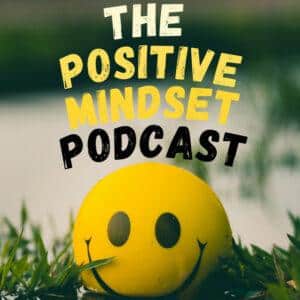
In this episode of the PBD Podcast, host Value-Tamber hosts a town hall with Robert F. Kennedy Jr., a candidate from the iconic Kennedy political dynasty. Kennedy, known for his commitment to justice and government transparency, has dedicated decades of his life to being an environmental lawyer. Despite his family’s political ties, he left the Democratic party to run as an independent, showcasing his strong convictions. Throughout the episode, Kennedy discusses various topics, including the 2024 election, the handling of the COVID-19 pandemic, the impact of big pharma, and his perspective on the Israeli-Palestinian conflict.
The episode begins by highlighting the significance of the upcoming 2024 election, with the future of the nation at stake. The speaker discusses the ever-changing political climate, including ongoing debates and discussions. Speculation arises about President Biden’s candidacy and potential drop out during the convention to control delegates. Concerns are expressed regarding President Biden’s energy and ability to lead during a challenging period in history. The speaker also reflects on past third-party candidates like Ross Perot and Teddy Roosevelt, examining their impact on presidential elections. The promise to keep the country out of war emerges as a key issue, and the independent candidate’s polling performance among different age groups and in battleground states is analyzed.
The speaker delves into the handling of the COVID-19 pandemic, specifically focusing on the debate between Governor DeSantis and Newsom. Governor DeSantis receives praise for his approach to scientific debate and his handling of COVID. In contrast, California’s management of the pandemic is criticized as one of the worst in the country, with extended lockdowns and significant impacts on children’s development. The speaker highlights how the lockdowns in California led to learning and speech delays in children, prompting the CDC to recalibrate its developmental milestones. Governor Newsom’s eloquence as a debater is acknowledged, but his difficult record to defend in California is emphasized.
The episode explores the impact of independent candidates and their fundraising efforts. The independent candidate believes they can win the election with 34% of the vote, currently polling at 24-27% in key states, while spending little money compared to opponents. They lead with independent voters at 36%, surpassing Trump and Biden. However, the candidate faces challenges with baby boomers due to their news sources, and they aim to change this perception. Media outlets not allowing live interviews, the candidate focuses on reaching younger generations through alternative news sources. The strategy to engage liberal Democrats through long-form interviews to change public perception is discussed. The speaker emphasizes the need to restore moral authority as a nation, rebuild the middle class, and end the chronic disease epidemic. The unaffordability of the housing market for many young people, with increasing housing prices and rising interest rates, is also highlighted.
The episode delves into the influence of big pharma and environmental concerns. Big pharma’s significant financial contributions to cable TV, particularly in the United States and New Zealand, raise questions about their influence on mainstream media. The speaker questions why big pharma is allowed to advertise, drawing parallels to banning cigarette and liquor ads on TV in the past. If elected president, the speaker expresses the intention to prevent big pharma from advertising on cable TV, citing the need for due diligence and research. The episode also discusses potential toxins causing health issues in America, including glyphosate, atrazine, high fructose corn syrup, Wi-Fi radiation, and PFOA. The speaker advocates for conducting a study to identify and eliminate these toxins, which contribute to 93% of healthcare costs.
The speaker addresses the Israeli-Palestinian conflict and the importance of government transparency. Reports suggest that bets against Israeli companies spiked before the Hamas attacks, raising questions about possible advanced knowledge and profiteering. The extraordinary wealth of Hamas and its connections to Iran raise doubts about Israeli government complicity. The speaker questions the moral difference between Hamas and Israel, highlighting Hamas’ use of human shields and its charter’s stance on annihilating Jews. If elected, the speaker plans to issue an executive order on day one to make it a firing offense for federal employees to collaborate with media to censor political speech. The speaker also expresses their belief in the overwhelming evidence that Sirhan Sirhan is not their father’s killer and advocates for his release. They question why President Biden and President Trump have not fulfilled their commitments to release all data and intelligence related to the JFK assassination.
In this thought-provoking episode, Robert F. Kennedy Jr. discusses various topics, ranging from the 2024 election and the handling of the COVID-19 pandemic to the influence of big pharma and the Israeli-Palestinian conflict. Kennedy offers unique insights into these subjects, emphasizing the need for government transparency, accountability, and a focus on the well-being of the American people. With his strong convictions and commitment to justice, Kennedy presents himself as a candidate who aims to restore moral authority, rebuild the middle class, and address pressing issues such as chronic diseases and environmental concerns. As the 2024 election approaches, Kennedy’s perspectives provide valuable insights into the challenges and opportunities facing the nation.